| Grantee | Centre for Marinelife Conservation and Community Development ↗ |
| Grant Amount | $351,000 |
| Duration | Three Years |
Centre for Marinelife Conservation and Community Development (MCD) has been working with Binh Dinh province and Directorate of Fisheries of Vietnam (Dfish) to enhance the resilience of small-scale fishing communities through the Ecosystem Approach to Fisheries Management (EAFM), at both local and national level.
At the local level, efforts were made building capacity and introducing EAFM. Key results included development of EAFM guidelines that are approved by Binh Dinh People’s Committee, applicable to Quy Nhơn locally managed marine reserves. With this approval, MCD was able to collaborate with DFish, facilitating the incorporation of EAFM principles into the highest-level fisheries legislation reform (New Fisheries Law, 2017). MCD further provided technical assistance for the preparation of empowering and establishing the community groups as recognised under the new Law. With MCD’s support, the four communes of the Quy Nhơn Locally Managed Marine Area (LMMA) were have their co-management practices took place.
At the national policy level, feedback from the work in Binh Dinh has been fed into modifications of the fisheries law and Decrees on both co-management implementation in the aquatic resources protection and community participation in the marine protected areas (MPA’s). EAFM and co-management practical models are being observed by the Department of Fisheries Resources Protection and is recommended for further training provided to a large number of fisheries officers throughout the country.
MCD proposed project “Supporting Vietnamese fisheries reform under the revised law: from national to local action” builds on momentums when co-management of fisheries resources became officially recognised in the revised fisheries law. Lessons learnt from a diverse network of co-management practices and champions shall be strong case study, that can inform and provide useful inputs to development of national technical guidelines for co-management of aquatic resources operation and evaluation, and development of a road map for enhancing co-management contributing to the Vietnam national program on aquatic resources protection in next strategic period 2021-2030.
The project has three components: 1) Building and Scaling Co-management practices in Binh Dinh province with some extension to other LMMA sites in central coastal provinces Quang Nam and Khanh Hoa provinces. 2) Assistance to DFish on technical guidelines for co-management and the strategies to reflect co-management in National Programme on Fisheries Resources Protection and Exploitation 2021-2030. Feedback into government policy and engage with managers/practitioners at national and local levels to identify capacity gaps and to inform development of the guidelines and 3) Developing Case Studies across the six management practices to present at a National Workshop. sharing experiences, and methods on co-management principles for reforming fisheries.
Six sites engaged in the project includes three communes Nhơn Hai, Nhơn Ly, Gheng Rang (Binh Dinh province), Bai Hương and Tam Tien (Quang Nam) and Ran Trao (Khanh Hoa). In these sites, i) adaptive fisheries co-management plan shall be developed and revised focusing on fisheries stocks and coral reef cover Ii) Workshops, providing education and pilot implementation of alternative income-generating livelihood options. To support the reduction of fishing effort in selected sites and iii) document lessons learned and challenges faced through implementing co-management practices across all project sites, with particular focus on the five Binh Dinh project sites to inform DFish’s 2020 Technical guidelines on co-management and national plan for fisheries protection.
At national level, i) drafting the technical guidelines on co-management and strategies, identify champions who can then provide institutional training and capacity building program; ii) Training/capacity building program for the local facilitators iii) youth led campaign and iv) network and dialogues
Key outputs/outcomes:
6 sites are supported with: adaptive fisheries management plans; technical guidelines and road map for national co-management implementation (including set of criteria for evaluation, drafted national action plan/road map for co-management implementation); a Network of co-management practitioners in central coast enhanced with 35 champions and facilitators at central and local level identified, trained, empowered for technical support to the network and national implementation of co-management. Workshops and events: inception, Interim workshop, final workshop, policy dialogue for co-management technical guidelines, national consultation for road map of co-management implementation and youth led outreach event). Reports sharing wider audience through public relations and social media.





















